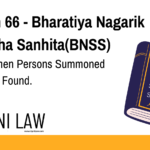Section 477 CrPC: High Court’s Power to Make Rules
This section of the Code of Criminal Procedure (CrPC) empowers High Courts in India to frame rules for regulating the practice and procedure in their respective jurisdictions.
1. Code
Section 477 CrPC: “Subject to the provisions of this Code and any other law for the time being in force, the High Court may make rules to regulate the practice and procedure of all criminal courts subordinate to it, and for the exercise of the powers conferred upon such courts by this Code or any other law for the time being in force.
2. Explanation
- This section allows High Courts to tailor the procedural framework to the specific needs and circumstances of their jurisdictions.
- The rules framed by High Courts must be consistent with the provisions of CrPC and other relevant laws.
- These rules cover a wide range of aspects, including:
- Filing of cases
- Summons and warrants
- Conduct of trials
- Appeals and revisions
- Enforcement of judgments
3. Illustration
For instance, a High Court can make rules regarding the use of technology in criminal courts, such as video conferencing for remote hearings or online filing of petitions.
4. Common Questions and Answers
Q: What is the purpose of Section 477 CrPC?
A: To empower High Courts to regulate the procedural aspects of criminal courts within their jurisdictions.
Q: Can High Courts make rules that conflict with the CrPC?
A: No, the rules framed by High Courts must be in harmony with the provisions of the CrPC.
Q: How are the rules made by High Courts enforced?
A: The rules are binding on all criminal courts subordinate to the respective High Court.






